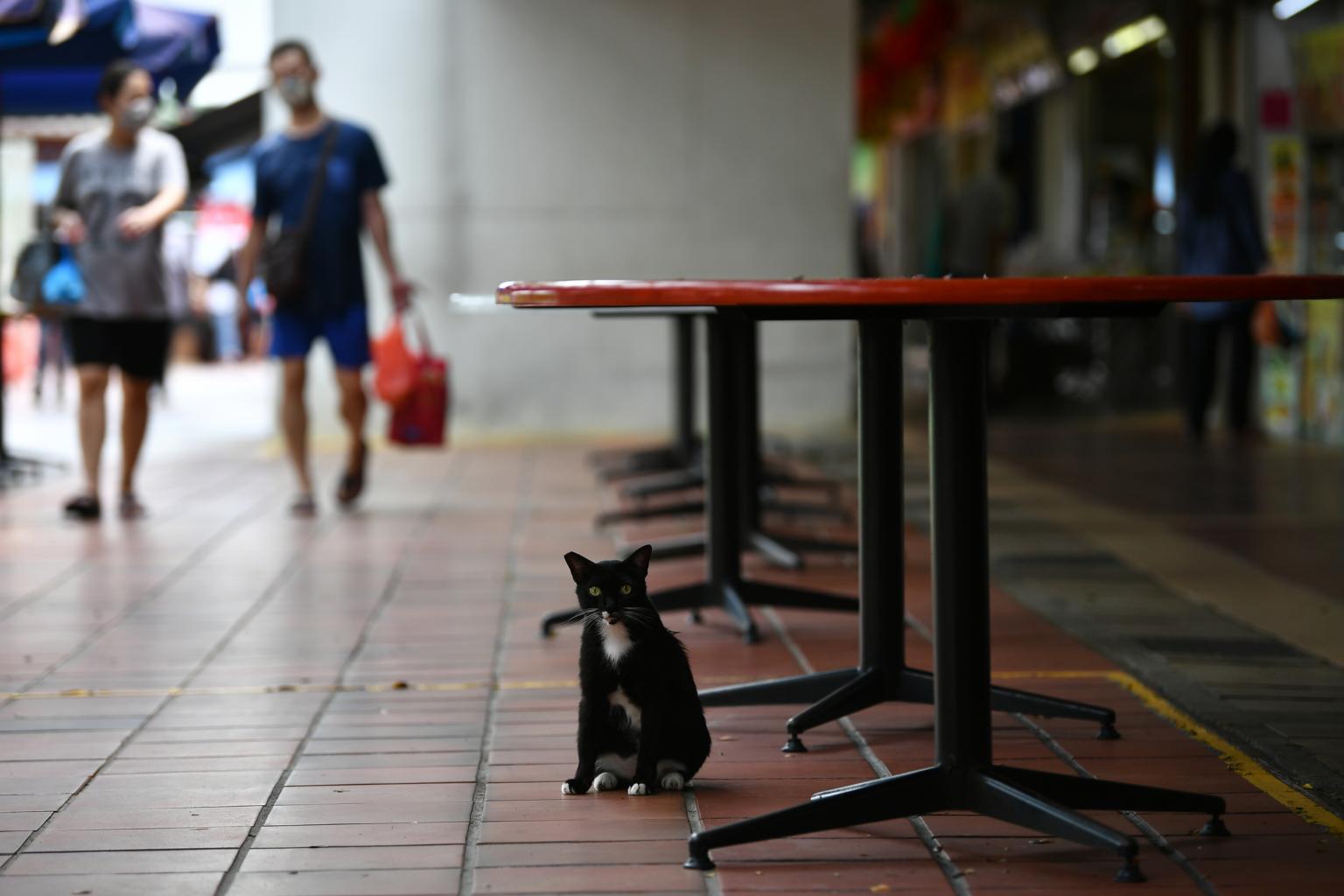Scientists monitoring human-to-animal transmission as coronavirus cases rise
Sign up now: Get ST's newsletters delivered to your inbox

Preliminary studies suggest that cats are the most vulnerable to infection.
ST PHOTO: LIM YAOHUI
Timothy Goh
Follow topic:
The scientific community is monitoring the transmission of Covid-19 from humans to animals as more cases surface around the world, said Duke-NUS Medical School's Professor Wang Linfa yesterday.
Prof Wang, who is director of the emerging infectious diseases programme at the school, said: "We have 4.3 million people infected (with Covid-19). Some have very close interactions (with animals) - some are farmers, some have pets."
Pointing to the recent cases of a zookeeper in New York who infected a tiger with Covid-19 as well as two mink farms in the Netherlands that saw their animals coming down with the disease, he said that such transmission was happening "without any doubt".
The fear is that animals may become asymptomatic carriers of the disease.
Prof Wang said it is unfortunate that when there is a virus infection in animals, they fall sick or die.
"That's bad. But worse is an asymptomatic infection.
"We are worried about asymptomatic infection in humans - imagine what happens in animals. If the animal can get an asymptomatic infection, transmit the virus to different animals or back to humans, then this vicious circle will be even worse in the context of transmission control."
However, he noted that this is a worst-case scenario, and added that the international community is watching the situation "very closely" and trying to ensure that human-to-animal transmission of Covid-19 remains limited.
The World Organisation for Animal Health (OIE) said on its website that studies are under way to better understand the susceptibility of different animal species to the coronavirus.
Preliminary studies suggest that poultry and pigs are not susceptible to infection, while cats are the most vulnerable. Dogs also appear to be susceptible, but not as much as cats.
The OIE said: "To date, there is no evidence that companion animals play a significant role in spreading the disease. Therefore, there is no justification in taking measures against companion animals which may compromise their welfare."

